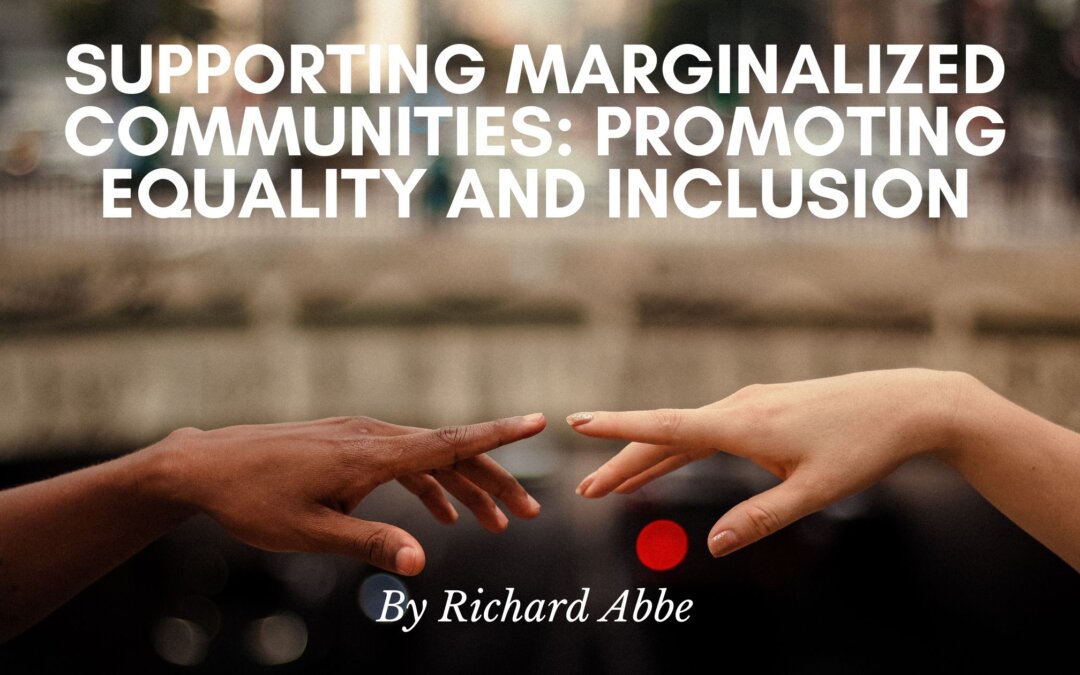It is crucial to address the disparities faced by marginalized communities. Promoting equality and inclusion is not just a moral imperative; it is a social and economic necessity. In this blog, we will explore the importance of supporting marginalized communities and discuss ways to foster equality and inclusion.
Understanding Marginalized Communities
Marginalized communities are groups of people who experience systematic, social, economic, or political exclusion. They often face discrimination and unequal access to resources, opportunities, and essential services. These communities encompass a wide range of identities, including but not limited to racial and ethnic minorities, the LGBTQ+ community, individuals with disabilities, and those living in poverty.
The Importance of Equality and Inclusion
- Social Justice: Promoting equality and inclusion is a fundamental aspect of social justice. It seeks to rectify historical injustices and create a fair and equitable society where all individuals are treated with dignity and respect.
- Economic Growth: Marginalization limits the potential of individuals and communities. By addressing inequality and fostering inclusion, societies can tap into the talents, skills, and potential contributions of all their members, leading to increased economic growth.
- Public Health: Access to quality healthcare, education, and living conditions is often denied to marginalized communities. Improving access to these essential services can enhance public health and reduce disparities.
- Innovation: Diversity and inclusion foster innovation. When different perspectives and experiences are valued and integrated, organizations and societies can develop creative solutions to complex problems.
Ways to Promote Equality and Inclusion
- Education: Equal access to quality education is a cornerstone of addressing inequality. Governments and organizations should invest in educational opportunities that are affordable and accessible to all.
- Anti-Discrimination Laws: Enforce and strengthen anti-discrimination laws to protect marginalized communities from unfair treatment in employment, housing, and public services.
- Representation: Encourage representation of marginalized communities in decision-making processes, including in government, business, and community organizations. This ensures that their voices are heard and their needs are addressed.
- Economic Empowerment: Promote economic empowerment through job training, small business support, and access to financial resources. Providing marginalized communities with the tools to achieve economic stability is vital.
- Cultural Competency: Increase cultural competency training for individuals and institutions to raise awareness and reduce bias.
- Mental Health Support: Marginalized communities often face disparities in mental health care. Ensure that mental health services are accessible and culturally sensitive.
- Community Building: Support community initiatives that promote social cohesion, networking, and support networks for marginalized communities.
Challenges in Supporting Marginalized Communities
Supporting marginalized communities is not without its challenges:
- Resistance to Change: There may be resistance from individuals or institutions to change existing practices that perpetuate inequality.
- Lack of Resources: Many marginalized communities need more resources, infrastructure, or political power to advocate for their rights effectively.
- Complex Intersections: Marginalized communities often experience multiple forms of discrimination due to the intersections of their identities, which can make their struggles more complex.
- Stereotypes and Bias: Prejudices and stereotypes can hinder progress, leading to unfair treatment and social exclusion.
- Policy Barriers: Some policies may disproportionately affect marginalized communities, exacerbating their challenges.
Conclusion
Supporting marginalized communities and promoting equality and inclusion are critical steps towards creating a fair and just society. By addressing historical injustices, fostering inclusion, and implementing anti-discrimination measures, we can overcome the challenges and disparities that marginalized communities face. Every individual and institution has a role in this ongoing effort to create a more equitable world. Inclusion and equality are not just principles to aspire to; they are the foundation for a more prosperous, just, and compassionate society.

